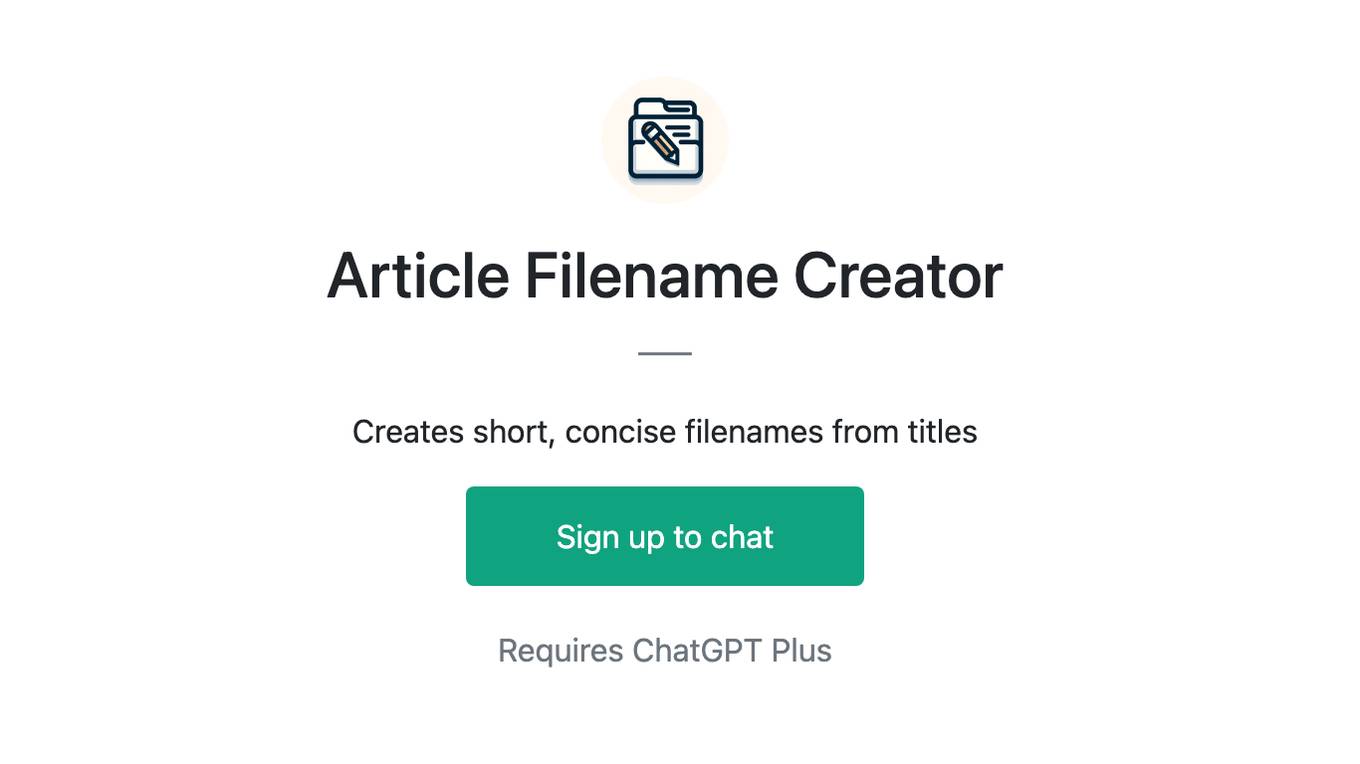Best AI tools for< Rename Variables >
7 - AI tool Sites
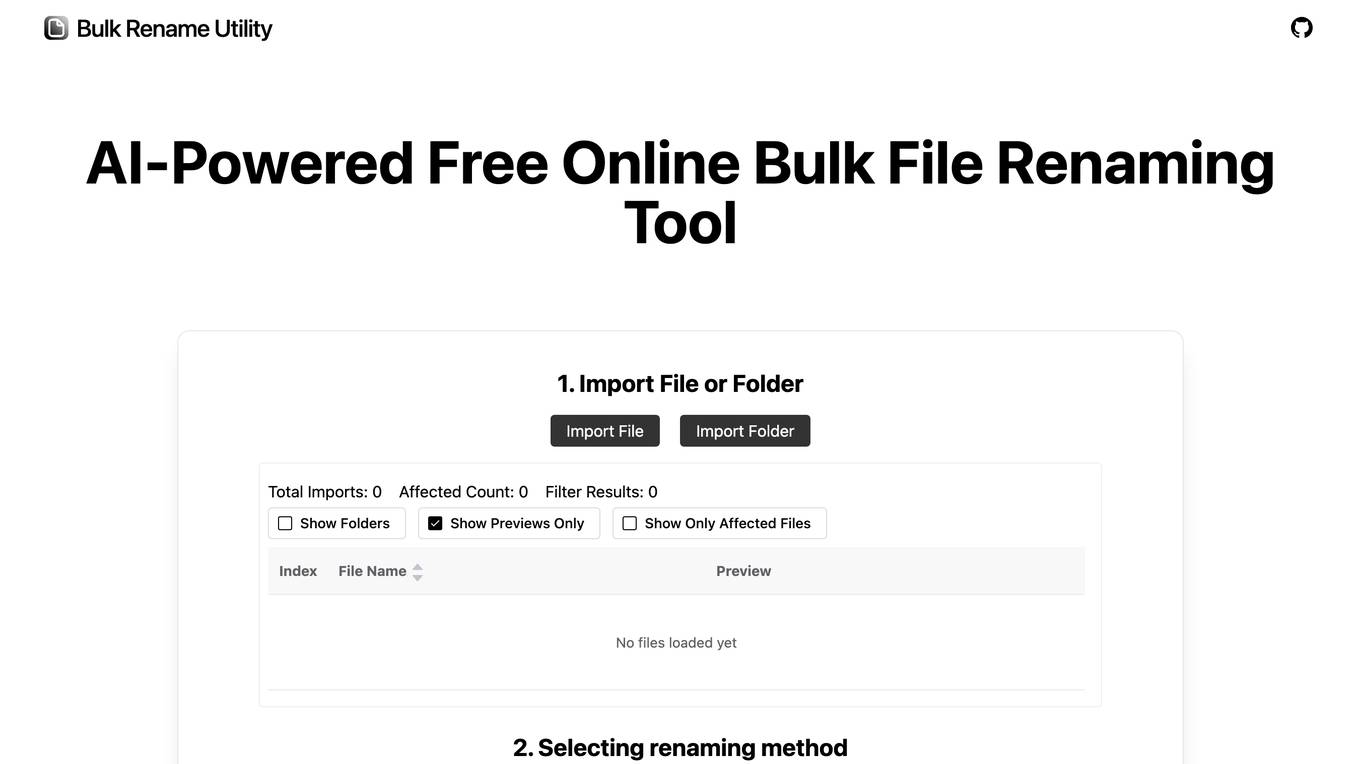
AI Bulk Rename Utility
AI Bulk Rename Utility is an intelligent file renaming tool powered by advanced AI technology, designed to simplify file organization and photo management for Windows and Mac users. The tool offers smart batch renaming capabilities, file organization features, and photo renaming functionalities. It ensures complete privacy protection by processing all operations locally on the user's device, without the need for file uploads to external servers.
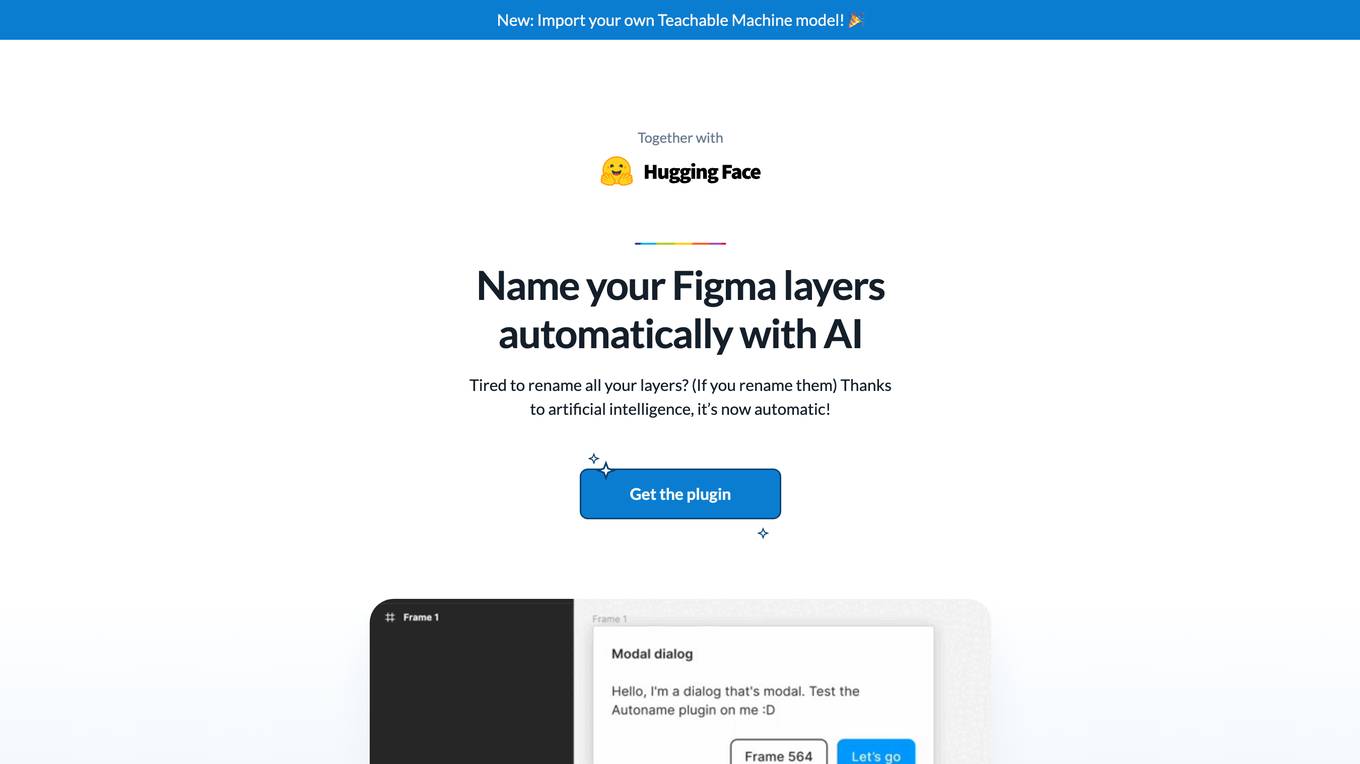
Figma Autoname
Figma Autoname is an AI-powered plugin designed to simplify the process of renaming layers in Figma designs. By leveraging artificial intelligence, the plugin automates the task of renaming layers, saving time and enhancing the overall design workflow. With a focus on efficiency and user experience, Figma Autoname streamlines the process of managing components and instances within Figma, allowing designers to focus on creating great designs. The plugin is community-driven, free to use, and open-source, encouraging collaboration and contribution from users worldwide.

AI Renamer
AI Renamer is an application that utilizes artificial intelligence to automatically rename files based on their content. It offers powerful features such as smart recognition, batch processing, and support for various file types. Users can also integrate their own AI models for enhanced flexibility and privacy. The application provides credit-based pricing options and supports both Mac and Windows platforms.

Diagram
Diagram is a suite of AI-powered design tools that help designers create beautiful and effective designs. With Diagram, you can generate SVG icons, create magical visuals, write and edit text, rename layers, and more. Diagram also offers a variety of features that make it easy to collaborate with other designers and share your work.
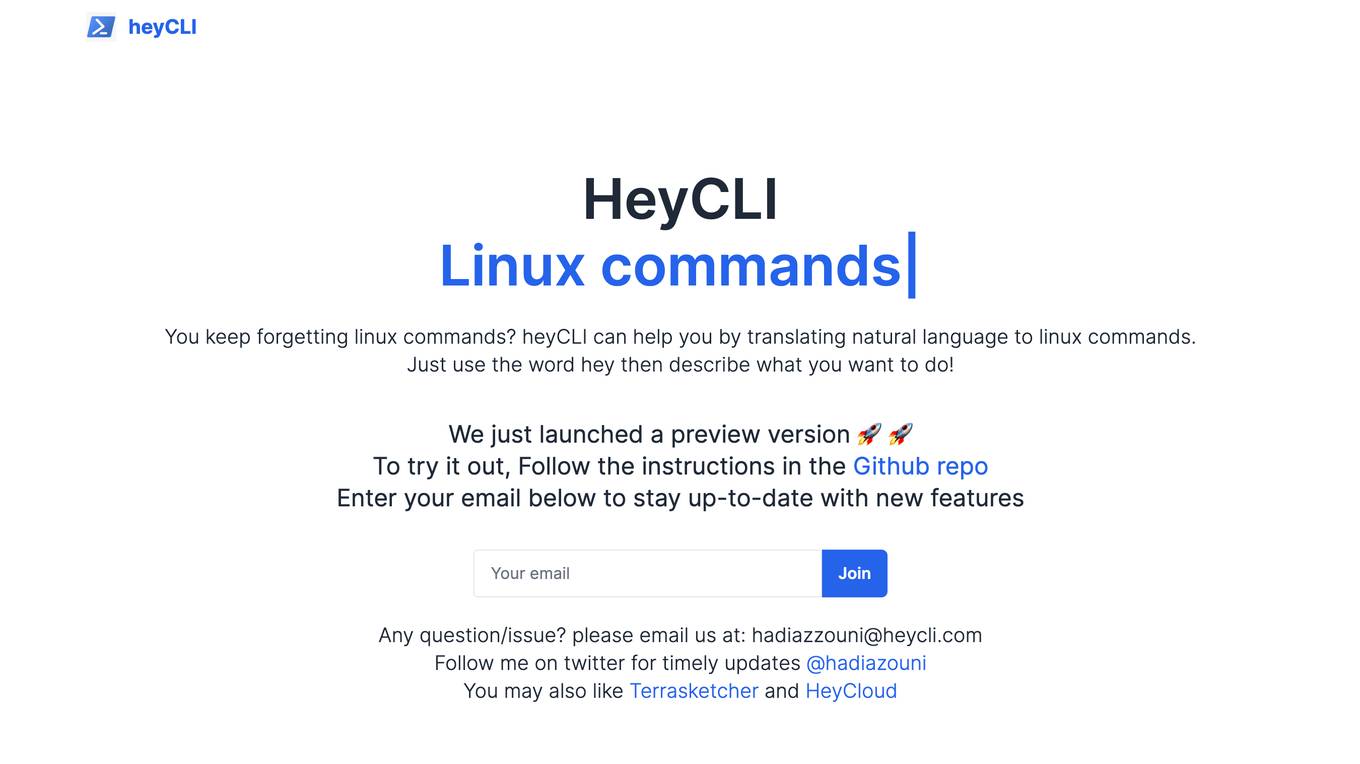
heyCLI
heyCLI is a command-line interface (CLI) tool that allows users to interact with their Linux systems using natural language. It is designed to make it easier for users to perform common tasks without having to memorize complex commands. heyCLI is still in its early stages of development, but it has the potential to be a valuable tool for both new and experienced Linux users.

Redirector
The website is a simple redirecting tool that forwards users from one URL to another. It is a basic utility used to automatically send visitors to a different web address. This tool is commonly employed in scenarios where a webpage has been moved or renamed, ensuring a seamless user experience by automatically redirecting them to the new location.
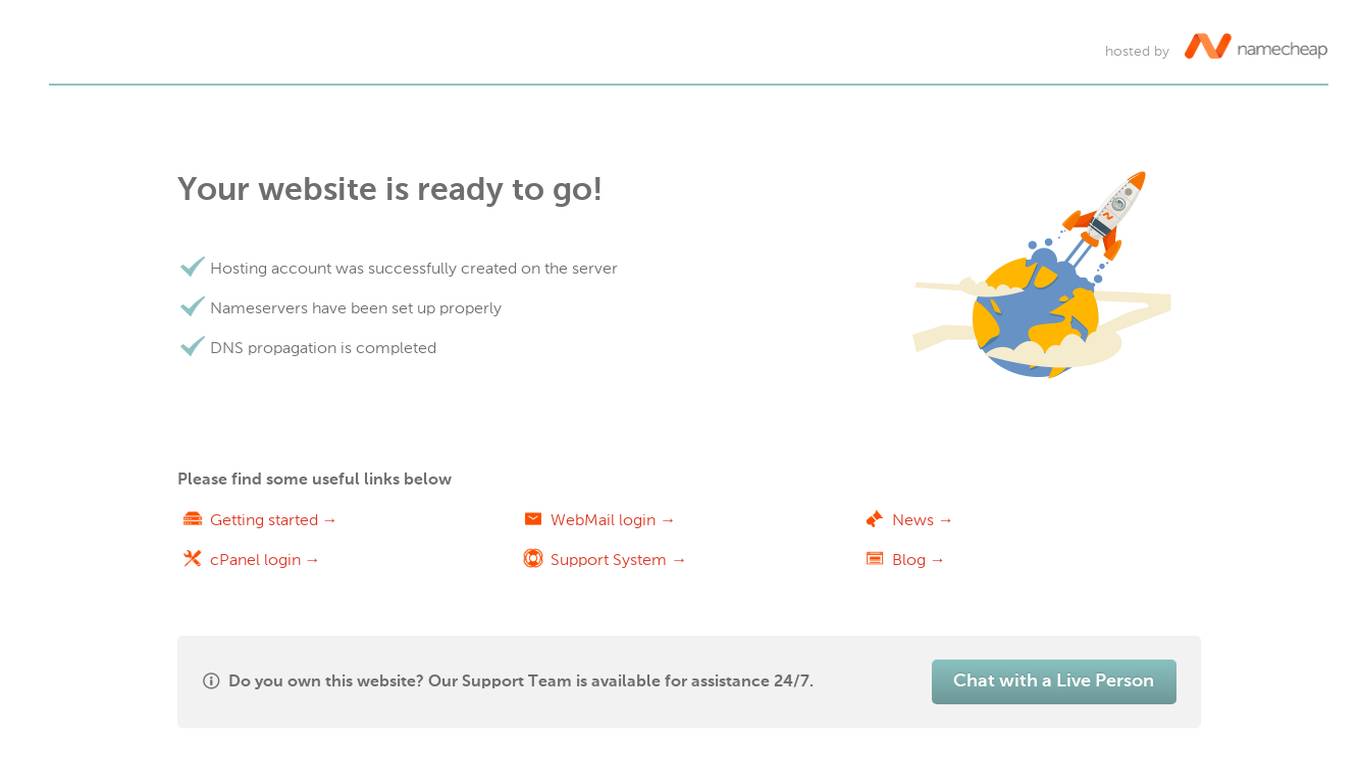
QuickRedirect
The website is a simple redirection tool that automatically redirects users to another webpage. It is designed to quickly and efficiently direct users to the intended destination without manual intervention. The tool is commonly used in situations where a webpage has been moved or renamed, ensuring a seamless browsing experience for visitors.
3 - Open Source AI Tools
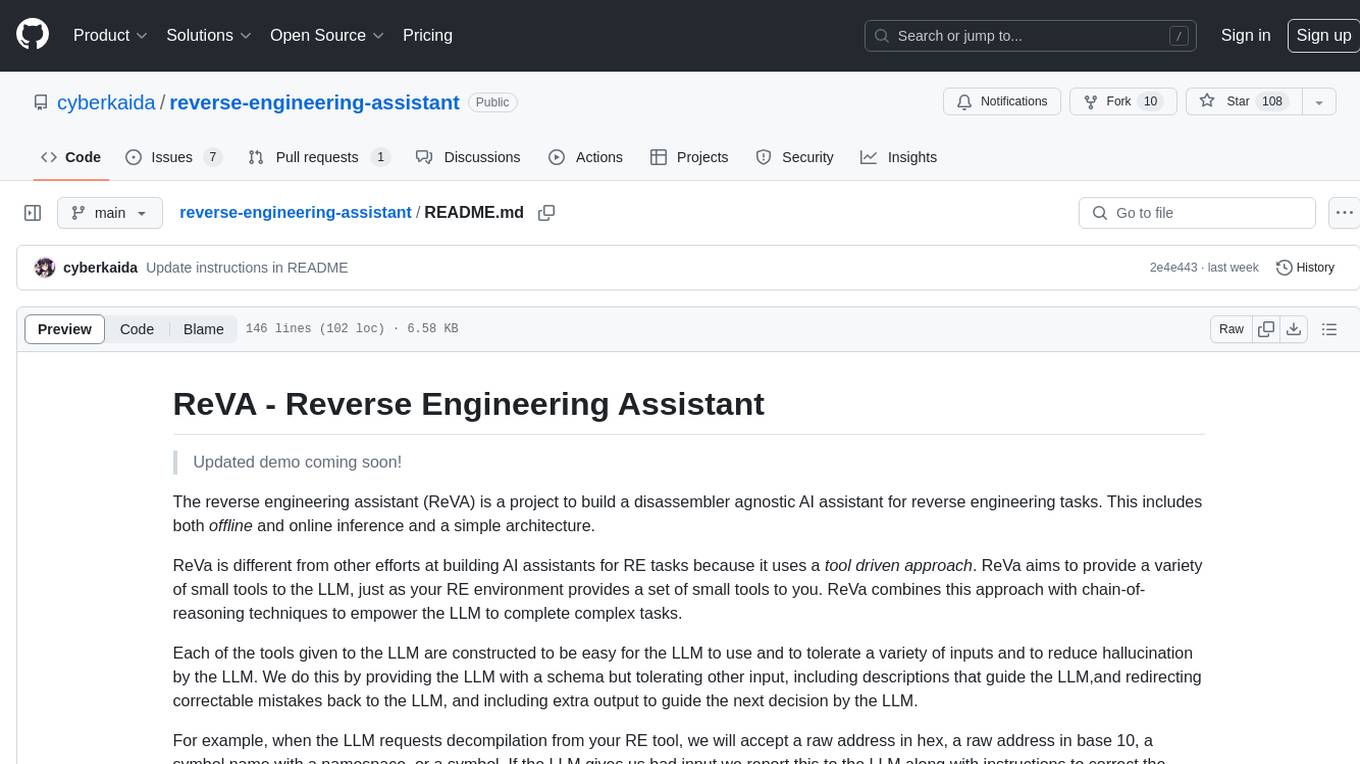
reverse-engineering-assistant
ReVA (Reverse Engineering Assistant) is a project aimed at building a disassembler agnostic AI assistant for reverse engineering tasks. It utilizes a tool-driven approach, providing small tools to the user to empower them in completing complex tasks. The assistant is designed to accept various inputs, guide the user in correcting mistakes, and provide additional context to encourage exploration. Users can ask questions, perform tasks like decompilation, class diagram generation, variable renaming, and more. ReVA supports different language models for online and local inference, with easy configuration options. The workflow involves opening the RE tool and program, then starting a chat session to interact with the assistant. Installation includes setting up the Python component, running the chat tool, and configuring the Ghidra extension for seamless integration. ReVA aims to enhance the reverse engineering process by breaking down actions into small parts, including the user's thoughts in the output, and providing support for monitoring and adjusting prompts.
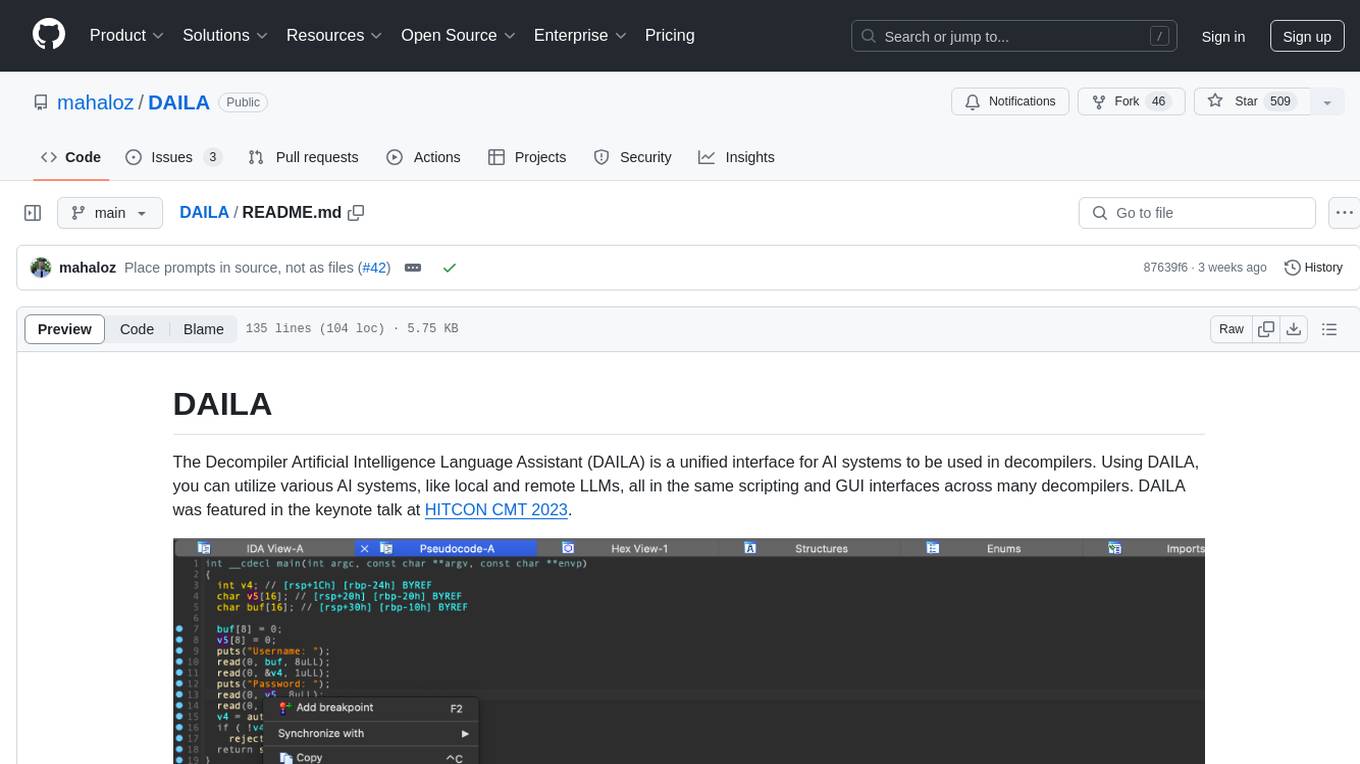
DAILA
DAILA is a unified interface for AI systems in decompilers, supporting various decompilers and AI systems. It allows users to utilize local and remote LLMs, like ChatGPT and Claude, and local models such as VarBERT. DAILA can be used as a decompiler plugin with GUI or as a scripting library. It also provides a Docker container for offline installations and supports tasks like summarizing functions and renaming variables in decompilation.
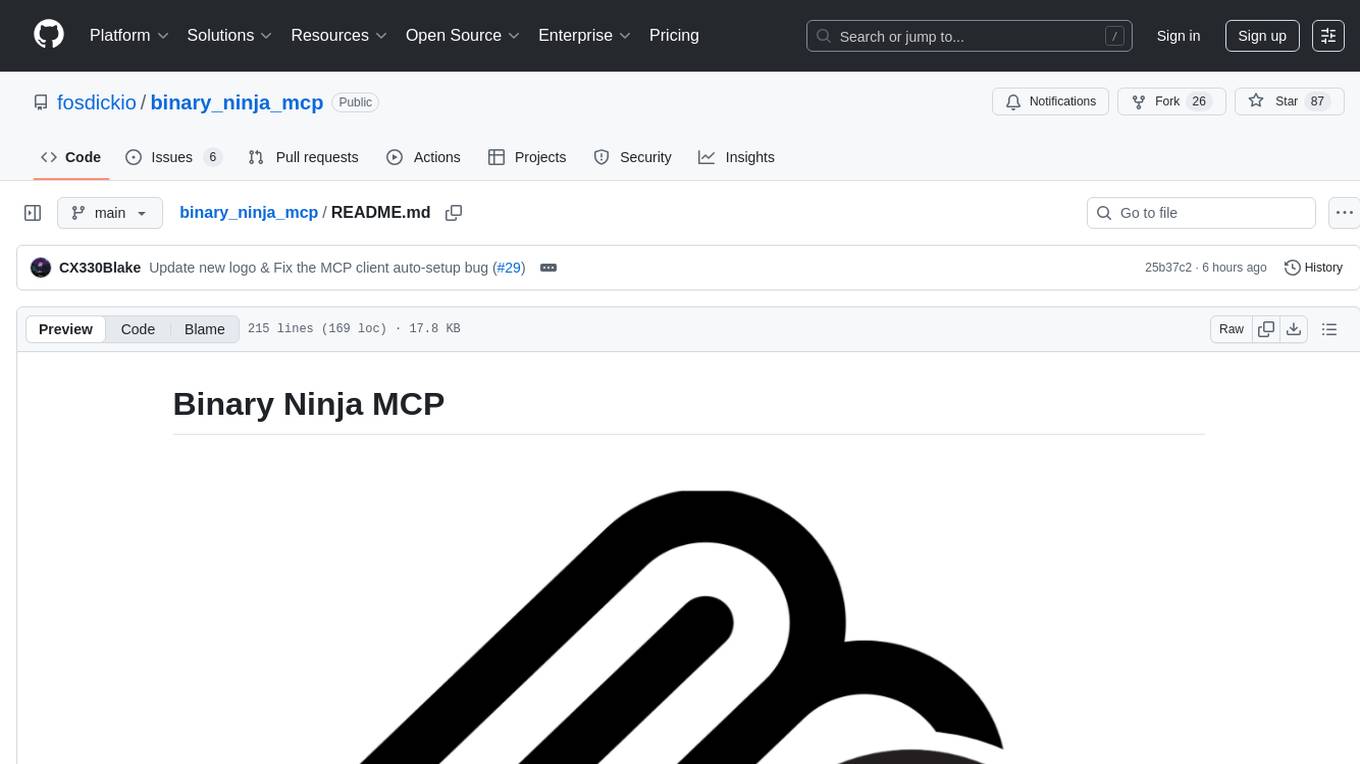
binary_ninja_mcp
This repository contains a Binary Ninja plugin, MCP server, and bridge that enables seamless integration of Binary Ninja's capabilities with your favorite LLM client. It provides real-time integration, AI assistance for reverse engineering, multi-binary support, and various MCP tools for tasks like decompiling functions, getting IL code, managing comments, renaming variables, and more.
